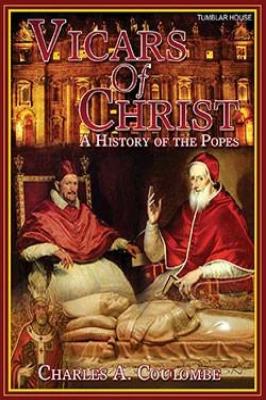Charles' history of the Popes, is one which is decidedly instructive for students and teachers of faith, and veritably enjoyable for average readers. His accounts are not only scientific examinations of causes and effects in the lives of the individual Popes (descriptions of events inevitably imply a before and after, thus causes and effects), how their characters show themselves to the Church at large, how adversaries and allies came into the scene (or left) the life of the Church, how their activities or teachings relate to their own days, their forbears, their accompanying saints, their spiritual progeny, their Council-members and brother bishops, but also this history shows interesting tidbits of contemporary relevance at every turn of the century, characteristically Charles, weaving together the plainness of facts, spiced with asides, or altogether embellished with the rich perspective of the specialist, daring wider scopes of narrative without injuring the disputants of the orthodox. There is much that can be understood with a text as this, and much more that could be said; it is the genre of the text that gives it such an pedagogical import, and its utility serves the historian, the statesmen, and the theologian alike, while its simplicity is reaching without being a bore. The studious will need this book as a support, much like the Catholic Encyclopedia, so that he can informatively compare and discriminate the Popes alongside his studies of general history, or as he dives into the canons of sacred Church Councils, or even alongside his political-economy studies of 'nationalism' or 'imperialism' or 'tribalism' etc; and also, your lay reader will be greatly edified in his battle defending the faith in the piety of his heart. If I could offer criticism, I would have liked to see a bibliography, and also perhaps an index of the anti-popes for clarity's sake.
God's blessing,
Jacob Nathaniel

